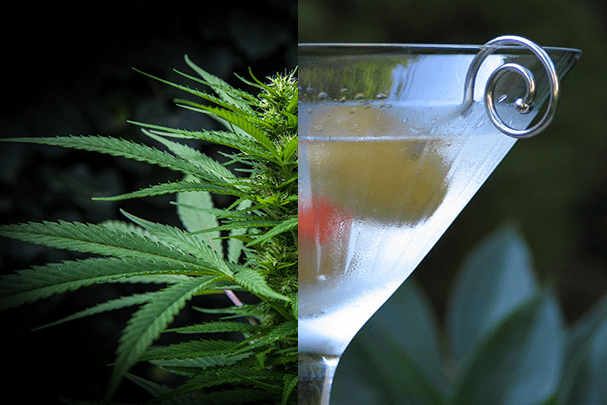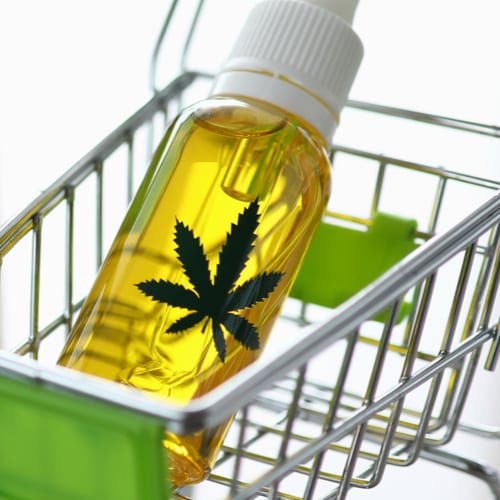
Should Alcohol and Cannabis Have Separate DUI Laws?
When it comes to the perils of cannabis and driving, there’s a lot to take into consideration. In an illegal state, getting caught with cannabis in the car can easily earn you a possession charge. Consumers in legal states face risks as well; charges of driving under the influence of cannabis can occur regardless of whether or not the driver is impaired. Many tests to detect THC levels in one’s system don’t account for the length of time cannabis metabolites remain in human cells, which means a driver may not have consumed cannabis in weeks but can still retain enough THC in their body to be found guilty of a DUI.
To further discuss the idiosyncrasies of driving and cannabis, we reached out to Scott Leist, a former Seattle police officer and criminal prosecutor who is now a defense attorney with Washington Traffic Defense, to get his perspective on the complexities of driving with cannabis in the car and driving under the influence of cannabis.
How would you interpret cannabis DUI laws, compared to other current alcohol or substance-related regulations?
Scott Leist: In Washington, the DUI (driving under the influence) laws related to marijuana are problematic. The legislature tried to create a per selegal limit, like the .08 limit for alcohol, without accounting for the fact that THC is nothing like alcohol.
First, THC obviously affects the body differently in terms of “intoxication.” In fact, some studies suggest that driving with moderate levels of THC in one’s system can actually improve driving performance (less risk taking, slower speeds, less aggression). No scientific study suggests that is true with alcohol.
Unlike alcohol, where the .08 limit was based on years of experience, medical data and some marginally “scientific” studies, the THC blood limit of 5ng/mL is completely arbitrary. There is simply no good science suggesting that 5 ng/mL is “impairing” or what amount would be “impairing.”
Can you explain why a lack of distinction between alcohol and THC is problematic?
Unlike alcohol, THC doesn’t quickly and completely metabolize.
For example, if I go out and have three beers of a known alcohol concentration, it’s pretty easy math to figure out my blood/alcohol level and how long it will take before it is all metabolized. THC, on the other hand, can be present, at somewhat low levels, long after one is completely sober.
How fast and how completely THC metabolizes depends on:
- How it was ingested,
- The time since ingestion,
- Whether the person is a regular (frequent) or heavy (dosage) user of marijuana; and
- The concentration of THC.
Small levels of THC can be present days or even weeks after ingestion, sometimes bringing someone who is completely sober close to or even over the 5 ng/mL limit long after they are sober.
Unlike alcohol, there isn’t a way to calculate how a certain item will affect an individual person. I know you can buy marijuana and the vendor will tell you the THC percentage, but there is no way to accurately predict, with any certainty, what that person’s blood THC level will be over time.
What is a “serving” of a marijuana brownie? What is the marijuana equivalent to “two beers?” How much THC for me, at my weight and age, will get me to a 5 ng/mL, level and how fast and how long will it take to wear off? Nobody knows. Alcohol allows for much more exact predictions.
Are there accurate field tests for THC intoxication?
Police officers don’t have a lot of experience or training for marijuana DUI detection. They don’t have a battery of field tests that they can go through to confirm or dispel their suspicions. They generally decide whether someone is DUI for THC based on:
- The driving,
- Observations (smell of marijuana, presence of marijuana/smell in the car),
- Physical signs, (which can be as simple as red eyes); and
- Any admissions to recent use.
So you can end up with VERY thin arrests. Then the only step they can take is a blood test, which generally requires a search warrant.
Finally, unlike alcohol, there is no way to personally check yourself to see if you have had too much THC. There are no breath tests for THC impairment. You generally can’t give yourself the field sobriety tests (walk & turn, etc.) like you can with alcohol to see how affected you are. Nobody falls down or throws up from THC (at least to my knowledge), making it harder for others to take your keys away.
Are there any best practices that you would recommend for those traveling with cannabis in the car?
Transporting THC in one’s car should look a lot like transporting alcohol. Keep it closed, put it in the trunk or other inaccessible part of the car, and don’t imbibe while driving.
People should also remember that while marijuana might be legal in your state, it is still illegal federally and in many other states, so don’t “forget” that you have marijuana in your glove box or a pipe if you are heading over a border.
SOURCE: leafly.com





